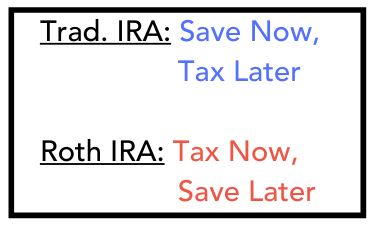Money
Have you considered investing in your future but don’t know where to start? Have you always wanted to set up a tax-advantaged savings account but haven’t had the income? A new law introduced has dramatically changed the terrain for graduate savings in 2020 and beyond. Read on for a baby yoda meme and how to become a millionaire!
 Have you considered investing in your future but don't know where to start? Have you always wanted to set up a tax-advantaged savings account but haven't had the income? A new law introduced has dramatically changed the terrain for graduate savings in 2020 and beyond!
Have you considered investing in your future but don't know where to start? Have you always wanted to set up a tax-advantaged savings account but haven't had the income? A new law introduced has dramatically changed the terrain for graduate savings in 2020 and beyond!
Thanks to Sens. Elizabeth Warren (D-Mass.), Mike Lee (R-Utah), and Ron Wyden (D-Ore.), the Graduate Student Savings Act (GSSA) was reintroduced in 2019 and passed into law through an omnibus spending bill. What does this law mean for graduate students' finances? Basically, the GSSA now allows grads to contribute income from fellowships to a tax-advantaged Individual Retirement Account (IRA).
As I mention in my "Financial Literacy: Tax Credits, Deductions, and Resources" workshop, our income is divided into two categories for tax purposes: compensatory and non-compensatory. Compensatory income, such as wages from teaching and research assistantships, are recorded on a W-2 form. If this income is from UCSB, you can find your W-2s on UCPATH. On the other hand, fellowship stipends and grants are considered non-compensatory income because we don't "work" for this funding in a conventional sense. You will typically receive a 1098-T (accessible on BARC) or 1099-MISC form for these types of income.
Prior to January 1, 2020, only income listed on a W-2 was considered "taxable income." This means that if your primary source of income was a fellowship or grant, you couldn't use that income to contribute to an IRA. This framework severely limited the investment capabilities of graduate students. The good news is that as of this year, we can take advantage of tax incentives no matter our income source.
There are two types of tax-advantaged retirement accounts to consider: traditional IRAs and Roth IRAs. The main difference between the two is when you pay taxes on your contributed income. For traditional IRAs, tax is calculated and deducted when you withdraw the funds from the account, once you hit retirement age. This allows you to not pay taxes on the income you contributed each year, and save it all up until the end. Conversely, for a Roth IRA, you pay the taxes on your contributed income up front, and all the money you save is untouched when you withdraw at the end of the account's term. Dr. Emily Roberts of Personal Finance for PhDs recommends that graduate students should create a Roth IRA account while we qualify for a lower tax bracket, which may sting a little now but will pay off big time in the future.
TL;DR:

You may be asking yourself: Why worry about investing in my retirement during graduate school? Why not wait until I am more financially established? The key ingredient for successful IRA investments is time. Most IRAs grow through compound interest, meaning that the longer your money sits untouched, the larger it will grow, even if you skip contributing in some years. Here's an example from PF for PhDs:
If you invested $250 per month at an 8% average annual rate of return for five years during graduate school, in that time you would contribute $15,000 and your ending balance would be $18,369.21. But if you then leave that money alone to continue compounding at 8% per year for 50 years - make no additional contributions - your money grows to almost a million dollars! That's an extra one million dollars in retirement that you would not have had if you had not started investing during graduate school!
As Dr. Roberts says, it's incredibly worthwhile to begin investing during graduate school, even at a rate of less than $250/month. Ready to learn more? Check out the resources below!
Personal Finance for PhDs--"Everything You Need to Know about Roth IRAs"
NerdWallet--"Individual Retirement Account: What is an IRA?"